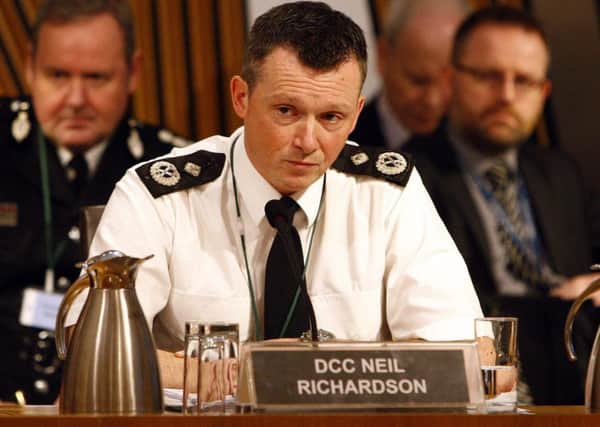Chris Marshall: Ripa has implications for all of us


Yesterday, Deputy Chief Constable Neil Richardson was summoned to Holyrood to provide answers to MSPs over a spying scandal which has engulfed Police Scotland since the summer.
Mr Richardson’s force was censured by the Interception of Communications Commissioner’s Office (Iocco) last month after an investigation found it had used Ripa – without first seeking judicial approval – to reveal details of a journalist’s source.
Advertisement
Hide AdAdvertisement
Hide AdIn a particularly heated meeting of the Scottish Parliament’s justice committee, Mr Richardson said the data breaches had occurred when officers attempted to find out the owner of a phone number.
The force’s Counter Corruption Unit began investigating after information was leaked to the press about the investigation into the unsolved murder of prostitute Emma Caldwell in 2005. At times struggling to cope with the questioning from members of the committee, Mr Richardson said media coverage of the affair had painted him as being as “archetypal villain” who oversaw a department in the CCU that was “running amok”.
But as colourful as the meeting was, it was a session in Westminster the day before which gave an indication of just how pervasive investigatory powers legislation is set to become.
A committee of peers and MPs was taking evidence on the draft Investigatory Powers Bill, which will update the legislation surrounding the use of such powers by the police and the security services. Branded a “snoopers’ charter” by critics, the legislation will allow not only for the interception of communications, but also acquisition of “bulk data” and, most controversially, will mean internet service providers will have to store for a year the online activity of users.
The committee heard from Vodafone, EE and O2 that the cost of retaining the data is likely to be “significant”, and that the firms will seek to recoup the costs.
Under the new powers, police and intelligence officers will be able to see the names of sites people have visited without having to seek a warrant.
While police will not be able to seek details of journalists’ sources without judicial approval under the legislation, there are real concerns about the impact the new laws will have on legal professional privilege – the ability of lawyers to speak freely with their clients without being spied on.
Both the Law Society and the Law Society of Scotland said the new legislation risks undermining legal professional privilege.
Advertisement
Hide AdAdvertisement
Hide AdLast year, the Investigatory Powers Tribunal heard that updated MI5 guidance published in January advised lawyers that while there was no “legal prohibition” on reading privileged material relating to their cases, doing so should be “avoided” to prevent prejudicing proceedings.
The documentation was released following a legal action brought by Libyans Abdul Hakim Belhaj and Sami al-Saadi, who sued the British government for alleged complicity in their detention and rendition.
It may have begun as obscure legislation known only to a few, but the continued roll out of investigatory powers has implications for us all.